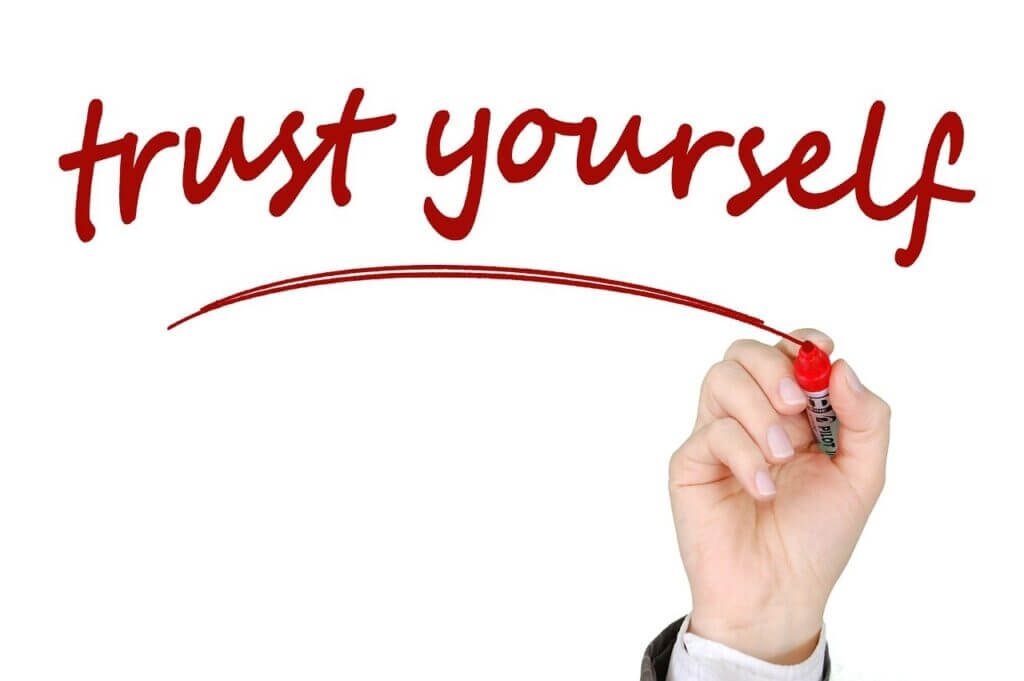Imagine a world where you walk into every room with an undeniable sense of self-assurance, where you radiate confidence and your self-esteem is unshakeable. Sounds enticing, doesn’t it? Well, you’re in luck because in this article, we will explore practical ways for you to manifest more self-confidence and self-esteem in your life. So, fasten your seatbelt and get ready to embark on a transformative journey towards becoming the most confident version of yourself.

Understanding Self-confidence
Defining self-confidence
Self-confidence refers to the belief and trust in oneself and one’s abilities. It is having a positive perception of one’s own worth, skills, and accomplishments. Self-confidence allows individuals to face challenges, take risks, and pursue their goals with a sense of assurance and resilience.
Benefits of self-confidence
Self-confidence brings numerous benefits to individuals in various aspects of their lives. It enhances one’s performance and productivity, as confident individuals believe in their abilities and are more likely to achieve their goals. Self-confidence also improves social and interpersonal relationships, as it promotes assertiveness and effective communication. Additionally, it boosts overall well-being and mental health, reducing stress and anxiety.
Factors that contribute to low self-confidence
Several factors can contribute to low self-confidence. Negative experiences, criticism, or rejection can significantly impact one’s self-esteem and confidence. Comparing oneself to others and feeling inadequate can also undermine self-confidence. Additionally, factors such as a lack of support, limited opportunities for success, and internalized negative beliefs can contribute to low self-confidence.
Building Self-confidence
Identifying limiting beliefs
To build self-confidence, it is crucial to identify and challenge any limiting beliefs. These beliefs are often deeply ingrained and may be rooted in past experiences or external influences. Recognizing these beliefs allows individuals to replace them with positive and affirming thoughts that support self-confidence and personal growth.
Setting realistic goals
Setting realistic and attainable goals plays a vital role in building self-confidence. By breaking down larger goals into smaller, achievable steps, individuals can experience a sense of accomplishment and progress. This fosters confidence in one’s abilities and motivates further action towards achieving desired outcomes.
Celebrating achievements
Celebrating achievements, no matter how small, is essential for building self-confidence. Recognizing and acknowledging personal accomplishments helps to reinforce a positive self-image and encourages individuals to continue working towards their goals. Whether it is through self-reflection, personal rewards, or sharing successes with others, celebration boosts confidence and self-esteem.

Embracing Self-acceptance
Recognizing self-worth
Embracing self-acceptance involves acknowledging and appreciating one’s inherent value and unique qualities. Recognize that your worth is not defined by external validation or achievements. By understanding and accepting oneself as a whole, individuals can cultivate a strong foundation of self-confidence.
Practicing self-compassion
Self-compassion is a powerful tool for building self-confidence. It consists of treating oneself with kindness and understanding in times of difficulty or self-doubt. By offering self-compassion, individuals can develop resilience and overcome challenges more effectively. It is important to remember that everyone makes mistakes and experiences setbacks, and practicing self-compassion allows for growth and learning.
Accepting imperfections
No one is perfect, and accepting imperfections is a fundamental aspect of building self-confidence. Embrace and appreciate both your strengths and weaknesses, recognizing that they are part of what makes you unique. Rather than focusing on perceived flaws, shift the focus towards personal growth and improvement.
Developing Positive Self-talk
Identifying negative self-talk patterns
Negative self-talk, also known as the inner critic, can significantly impact self-confidence. It involves negative and self-defeating thoughts that undermine belief in one’s abilities. Start by becoming aware of these patterns and the specific triggers that activate negative self-talk. Identifying these patterns is the first step towards challenging and changing them.
Challenging negative thoughts
Once negative thoughts are identified, it is essential to challenge their validity. Consider evidence that contradicts these negative beliefs and replace them with more realistic and positive perspectives. Reframe negative thoughts into more constructive and encouraging statements that support self-confidence and personal growth.
Replacing with positive affirmations
Positive affirmations are powerful tools for building self-confidence. These are positive and inspiring statements that reinforce one’s self-worth and abilities. Create a list of affirmations that reflect your strengths, accomplishments, and aspirations. Repeat these affirmations regularly, either silently or aloud, to internalize positive self-beliefs and boost self-confidence.

Surrounding Yourself with Positivity
Choosing supportive relationships
Surrounding yourself with supportive and encouraging individuals can greatly impact self-confidence. Seek out relationships with people who uplift and believe in your abilities. Positive and supportive friends, family members, or mentors can provide a nurturing environment where self-confidence can flourish.
Avoiding toxic influences
Toxic influences, such as negative or overly critical individuals, can drain self-confidence and hinder personal growth. Recognize and distance yourself from relationships or environments that consistently undermine your confidence. Protect your self-esteem by surrounding yourself with positive and nurturing influences.
Engaging in positive activities
Engaging in activities that bring joy, fulfillment, and a sense of accomplishment can enhance self-confidence. Pursue hobbies, interests, or passions that align with your strengths and values. By engaging in positive activities, you cultivate a sense of purpose and boost self-confidence as you witness your own growth and success.
Taking Care of Your Physical Health
Exercising regularly
Regular exercise not only benefits physical health but also plays a crucial role in building self-confidence. Engaging in physical activity releases endorphins, which are natural mood-enhancing chemicals. Regular exercise promotes a positive body image, increases energy levels, and reduces symptoms of stress and anxiety, all contributing to improved self-confidence.
Getting enough sleep
Adequate sleep is essential for overall well-being, including self-confidence. Getting enough rest enhances cognitive function, concentration, and emotional regulation. When well-rested, individuals are more likely to approach situations with a clear mind and maintain a positive mindset, reinforcing self-confidence.
Maintaining a balanced diet
A balanced diet provides essential nutrients that support brain function and overall health. Certain foods, such as those rich in omega-3 fatty acids, antioxidants, and vitamins, have been linked to improved mental well-being. Proper nutrition helps regulate mood and energy levels, contributing to increased self-confidence.
Strengthening Skills and Knowledge
Investing in personal growth
Investing in personal growth by acquiring new skills and knowledge can significantly boost self-confidence. Seek out opportunities for learning and development that align with your interests and goals. By expanding your skill set, you cultivate a sense of competence and mastery, enhancing self-confidence in various areas of your life.
Learning from failures
Failures and setbacks are inevitable, but they provide valuable learning experiences. Embrace failures as opportunities for growth and self-improvement. Reflect on what you learned from each setback and use those lessons to strengthen your confidence and resilience in future endeavors.
Building expertise
Become an expert in areas of interest or professional fields to build self-confidence. Continuous learning and practicing allow individuals to deepen their knowledge and expertise, further solidifying belief in their abilities. By becoming proficient in a particular domain, you establish yourself as a valuable and confident resource.
Practicing Assertiveness
Expressing yourself confidently
Practicing assertiveness involves confidently expressing your thoughts, opinions, and needs, while respecting the rights of others. Clearly communicating your boundaries and desires helps build self-confidence and establish healthy relationships. Remember that your voice and perspective are valid, and assertiveness allows for authentic self-expression.
Setting boundaries
Setting boundaries is an essential aspect of maintaining self-confidence and well-being. Clearly defining your limits, both with yourself and others, helps protect your time, energy, and emotions. Setting and maintaining boundaries fosters self-respect, prevents burnout, and reinforces the belief that your needs are important.
Respecting others’ opinions
While it is important to express your own thoughts and beliefs, it is equally crucial to respect the opinions of others. Valuing diverse perspectives encourages open-mindedness and promotes healthy interactions. Respecting others’ opinions does not diminish your own self-confidence; in fact, it reflects maturity and confidence in your own viewpoints.
Cultivating a Growth Mindset
Embracing challenges
A growth mindset is the belief that abilities can be developed through dedication, effort, and learning. Embrace challenges as opportunities for growth and continuous improvement. Shift your mindset from fearing failure to viewing challenges as valuable stepping stones towards personal development. By embracing challenges, you will build self-confidence, resilience, and a passion for learning.
Viewing setbacks as learning opportunities
Rather than being discouraged by setbacks, view them as opportunities to learn and grow. Analyze the reasons behind the setback, identify areas for improvement, and adjust your approach accordingly. Each setback is a chance to cultivate resilience, problem-solving skills, and self-confidence.
Believing in personal development
Believe in your ability to develop and improve throughout your life. Recognize that abilities are not fixed or predetermined, and consistent effort and dedication lead to growth. Embracing the mindset that personal development is a lifelong journey cultivates self-confidence and the belief that you can achieve your goals through continued learning and progress.
Seeking Professional Help
Consulting a therapist
If struggling with low self-confidence, seeking the guidance of a therapist can be immensely helpful. A therapist can provide a safe and supportive environment to explore underlying issues, develop coping mechanisms, and challenge negative beliefs. Working with a therapist can facilitate personal growth and the development of self-confidence.
Joining support groups
Joining support groups or engaging in group therapy with individuals facing similar challenges can offer a sense of camaraderie and support. Sharing experiences and receiving validation from others can help individuals realize that they are not alone in their struggles and provide inspiration for building self-confidence.
Taking advantage of resources
Numerous resources, such as books, podcasts, and online courses, are available to support individuals in building self-confidence. Take advantage of these resources to gain insights, learn new strategies, and cultivate a positive mindset. Utilizing these resources complements personal growth efforts and encourages self-confidence.


